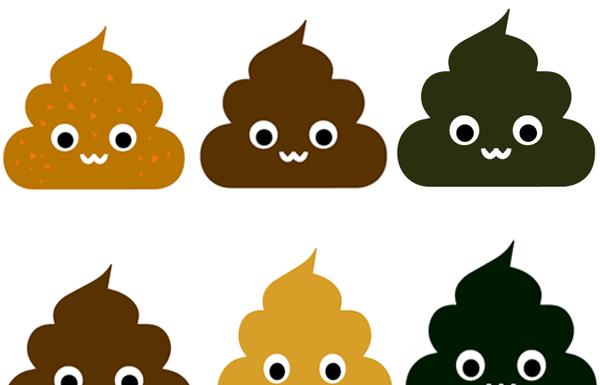The newborn's feces reflect the baby's health in the first days after birth. The color of stool and the accompanying smell tell the mother what the baby is suffering from.
content
Black blue
Light green brown color
Yellow
Light brown
Dark brown
Other colors
Most first-time parents are surprised to observe the infant 's feces . There are at least 6 different colors and textures that even experienced parents can hardly distinguish.
. The condition of a newborn's stool will depend on factors such as:
Age
Your baby is given breast milk or formula milk
Childhood stage
Newborn feces will vary from infancy to 1 year and from day to day. On regular stools, you will know which "product" is normal and which is not.

Each stool color is a baby's developmental stage
Here are six common fecal colors that first-time moms need to know:
Black blue
It is the color of poop. Immediately after birth, the baby will go "defecate" and the feces is green and black. Extremely normal and nothing to worry about. The colostrum in breast milk will act as a laxative and help the baby go to the toilet easily.
Light green brown color
This is a good sign that your baby has begun to digest breast milk or formula.
Yellow
If your baby is breastfed only, he or she will have yellow stools or mustard-looking seeds from about five days after birth.
Light brown
Formula-fed babies often have peanut butter-like stools, with a more pungent odor than breastfed infants.
Dark brown
Once a baby is weaned with solid food, his stool tends to be dark brown and more smelly.
Other colors
Occasionally, your baby's feces will mix with the colors from the pigments they eat in foods. So if your baby is eating carrots, his stools may be yellow-orange in color.
In short, an infant's stool condition is normal if the baby has a bowel movement without any discomfort, crying or pain. The phenomenon of blushing when going out in babies is quite common, so parents don't need to worry too much. However, if the baby is fussy, uncomfortable, and strained a lot when he has a bowel movement, parents should see the doctor because it can be a sign that the baby has rectal problems.












